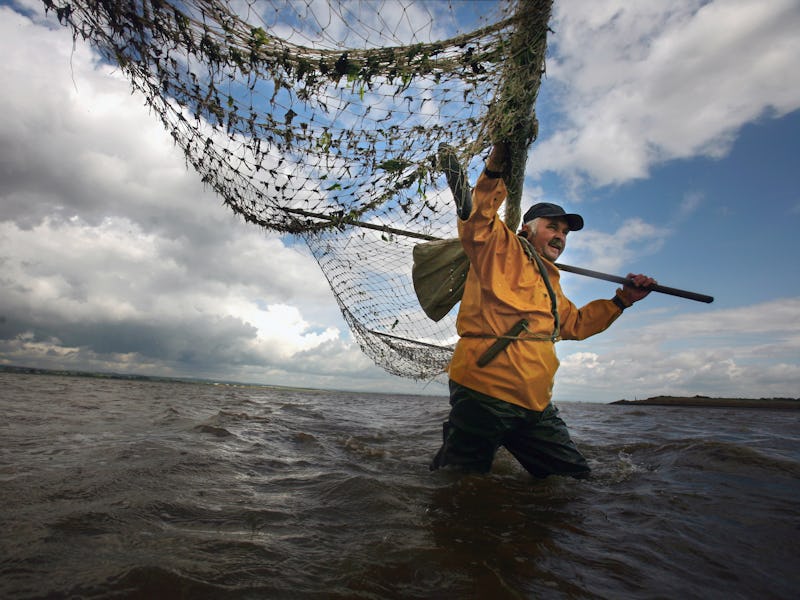Most of the World's Wetlands Will Soon Drown as Ocean Levels Rise
And more will disappear as people turn them into farms.

Wetlands have long faced major threats from human activity. The Wetlands Global Extent Index estimated in 2014 that the total area covered by wetlands has decreased by half since 1970. The remaining 300,000 square miles of wetland on Earth house a disproportionate amount of the planet’s biodiversity. Every year we’re still discovering about 200 new fresh water fish species in these ecosystems.
While these areas have proven resilient in facing down extensive drainage and aquaculture development, a new report out of Cambridge University predicts that climate change could wipe away as much as 78 percent of the remaining wetlands during the 21st century. The principal destructive force will be rising sea levels, as it should come as no surprise that much of the world’s wetlands are near the ocean.
Even if sea levels stick to the lower end of predictions for their rise, we’re still looking at losing at least another half of the world’s wetlands in the coming decades.
“Wetlands are particularly sensitive to environmental change, and are being lost worldwide due to human activity, such as conversion to agriculture, and through the effects of climate change, including rising sea levels,” the report’s lead author, Tom Spencer of the University of Cambridge’s Department of Geography, said in the university’s news release.
And the authors are not optimistic about wetlands expanding inland to claim new territory as the ocean subsumes their current domain. Typically, wetlands would “migrate” to avoid the sea, but various human strategies set up to defend against the encroaching ocean, including dams and dikes, are now blocking the path.
The Cambridge study is the first to try to appreciate the effects of this squeeze on wetlands. The authors say they hope to help policymakers appreciate and weigh the full impact of these containment strategies.
“One of the key things this project shows is that we need integrated management of wetlands and coastal protections on a national and international scale,” Spencer said. “Because if you don’t, in many cases if you protect one section of the coast, all you’re doing is moving the problem somewhere else.”
For years, research organizations have considered wetlands among the most vulnerable ecosystems in the world due to their unique combination of threats. Now we’ve put a number to it: some four-fifths could disappear within a century.